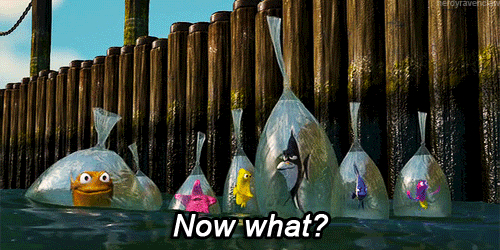Eating disorders are damaging illnesses that can grasp away your happiness for long periods of time. For eating disorders awareness week, Charlie discusses the confusion you may feel once you have recovered from an eating disorder, and how to deal with conflicting feelings.
You’ve reached out for support from your closest friends. You’ve stopped acting on as many negative thoughts. You’ve finished therapy. You’ve got into your university of choice, you’ve relapsed, and you’ve got back on track.
But where does that leave you now?
There are thousands of books, blogs, and helplines for those being controlled by an eating disorder. In the horrible years of self-loathing, self-punishment and isolation, there is support there for you when you feel ready to reach out.
But there do not seem to be many examples revealing the slump you feel after recovering – or at least not many that I have easily come across. Yes, I am a million times better than three or four years ago, but the pain is still lingering.
My relationship with my body is still broken. I still view parts of my body as a problem: the cellulite and stretch marks on my thighs, the size of my tummy. You try to rationalize – like they told you to in therapy so long ago – by saying that “it’s normal” to feel self-conscious, or that “everybody has low days”. But where do you draw the line between needing little reminders that you’re enough, and needing official help?
I think that there’s a tendency to feel like the fish tank gang in Finding Nemo: now what? You’ve completed the recovery plan that you’ve been working on for what feels like a lifetime, and now you’re free, but still stranded somehow.
Part of the problem is that I’ve blocked things out. I watched ‘Call the Midwife’ the other night, and the treatment for one of the characters’ depression shocked me, giving me sudden flashbacks of the horrible evenings when I could see nothing past my routine of punishment and binging. Simple things like the memory app on Facebook remind me of when I was slimmer, and I question why I ever let myself get bigger again. Even getting a disappointing essay mark reminds me of the struggles I faced in year 12, too busy engulfed in my own horrible thoughts to concentrate on studying.
I’m in a better place now. I’m doing better in essays, I have friends I can meet up with, I’m happy in a relationship… And yet something is still holding me back. I still struggle with the way I look, with my confidence and making meals for myself. And I find that it’s difficult finding advice about how to deal with these feelings.
Having issues with your body and weight is always problematic having experienced an eating disorder. You become reluctant to change anything in your diet, worrying that any healthy change will result in a binge or restriction, and that it will lead you all the way back to square one. But I am coming to realize that as long as any choices you make are due to wanting to be healthier – for instance lifting weights to make your body feel stronger, or taking evening walks to clear your head – your body will thank you for it. I’ve become so used to eating whatever I want now that it’s natural: how amazing is that, considering that a coffee was a struggle for me four years ago? The rewarding part of having a mental illness is that you remember how hard you worked to overcome it, giving you strength to keep moving away from its grasp.
I believe that my haunting memories will remain with me forever. But I also believe that true happiness is always possible. I take comfort in the happy times: dancing to your favourite song at a house party, spending the day in London with your loved one, catching up with friends from home… These are the little moments that make everything worth it. I am thankful that its voice is further away than ever before, and that I can continue to challenge its thoughts.
My advice is to follow as many body-positive accounts as possible. I find that filling your Instagram and Facebook feed with people who are learning to find peace with their body or who have experienced eating difficulties is always inspiring on a blue day. I also think that having people to talk to if you’re feeling confused is vital – if you don’t feel comfortable talking to a friend then you can go to the drop-in counseling service on campus – or even mention it to your personal tutor.
You are told throughout recovery that you are never alone – and this is still true afterwards. Never give up on your wellbeing and happiness: there is nothing more important.
Charlie Collett
After note: This article is written from the perspective of a recovered eating disorder sufferer, who received NHS help and worked hard for a long time to get better. Only you know when you have recovered, and only you know when any dietary or exercise change has been decided for genuinely good and non-harming reasons.
If you are feeling unstable with your progress, or you feel that you may have gone into relapse, please reach out for help. First and foremost, you need to push that controlling voice as far away from you as possible, and then you can focus on long-term peace.
(Image courtesy of http://popkey.co/m/eL3qg-now+what-nemo-bored)

